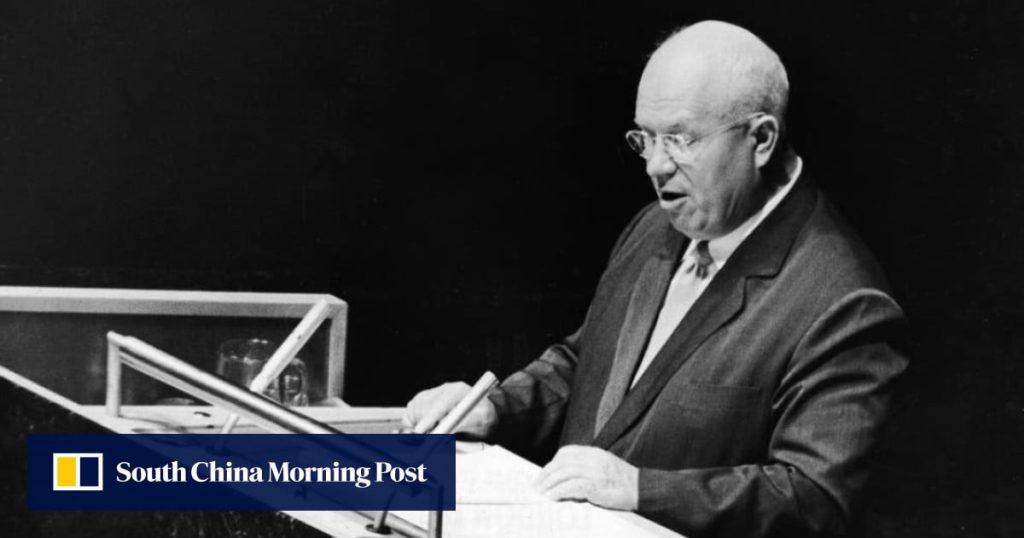Would the Cold War have unfolded differently if Nikita Khrushchev had chosen a different interpreter? It is a decades-old thought experiment, born of the phrase translated as “we will bury you”, but it is chiming with today’s strategic rivalry between China and the US.
Whether the statement, attributed to the then-leader of the Soviet Union in 1956, should instead have been interpreted as the less aggressive “we will outlive you”, the incident sheds light on a recurrent headache in modern diplomacy.
Wittingly or unwittingly, mistranslations appear to be increasingly testing already strained nerves in Washington and Beijing, according to a report released earlier this month by the prominent US think tank Rand Corporation.
The study, titled “Stabilising the US-China Rivalry”, accuses a number of influential China hands – all proficient in Mandarin and drawing on Chinese-language sources in their arguments – of a “hawkish” distortion of Beijing’s terminology.
These “respected authorities” fuelled an increasingly common view that Beijing had “well-established, specific and uncompromising intentions that make almost any form of effort to create a meaningful equilibrium on specific issues pointless”, the study said.
The policy research organisation’s analysts gave numerous examples in the 115-page report to support their argument that prominent China watchers “sometimes rely on a narrow subset of sources and take these sources out of context”.



